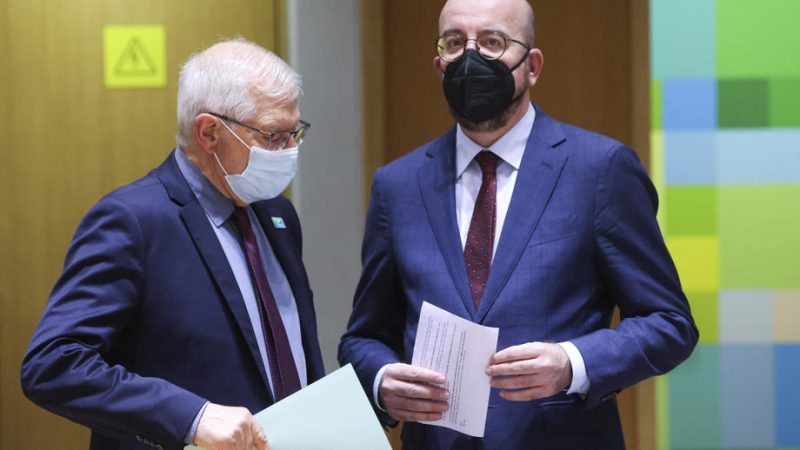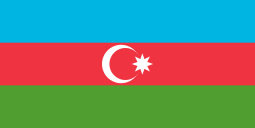
EU leaders gather to respond to Russia’s new war in Ukraine
24 February 2022
***The story has been updated after the Russian strikes on Ukraine on early Thursday morning and will be continuously updated during the day.
The EU is set to hold an emergency summit in Brussels on Thursday (24 February) evening, which will have to find a response to Russian President Vladimir Putin’s military strikes in Ukraine early Thursday local time.
The EU will “swiftly adopt” fresh sanctions against Russia following its decision to fully invade Ukraine, European Council President Charles Michel said in a statement on Thursday morning.
EU leaders will discuss those new measures at an in-person emergency summit called for Thursday evening, scheduled for 8pm CET in Brussels.
According to EU sources, the idea of an in-person summit was to discuss the issues in more detail. No electronic devices will be allowed in the meeting room.
The punitive measures, Michel said in a statement, “will impose massive and severe consequences on Russia for its action, in close coordination with our transatlantic partners.”
“We deplore the loss of life and humanitarian suffering,” Michel said.
“The EU and its member states are ready to urgently provide humanitarian emergency response. We call on Russia and Russia-backed armed formations to respect international humanitarian law,” he added.
EU ambassadors were scheduled to meet at 9:00 CET this morning to discuss the next steps on Russia sanctions and prepare the special EU summit.
More sanctions coming
Speaking in Brussels in the morning, European Commission President Ursula von der Leyen confirmed that the next stage of the EU’s ‘massive and unprecedented’ sanctions package on Russia will be presented to member states later today.
According to her, the proposals include stopping access of Russian banks to EU capital markets, blocking access to key technologies, ‘weakening the country’s economic base’.
The EU had said it has been keeping more, tougher sanctions up its sleeve should the Russian forces invade further, beyond the territory that the separatists hold.
Against this background, EU leaders are expected to impose the “unprecedented” sanctions against Russia that have been in preparation for the past few weeks.
Those would include cutting off Russia from the international financial market and banning the export of high-tech.
Russia’s political leadership and oligarchs who support President Vladimir Putin are also likely to be targeted by further sanctions.
Moreover, there might be a consideration to apply to the regime in Belarus, from whose territory Russian tanks advanced across the border into Ukraine.
However, cutting Russia off the SWIFT global interbank payments system – one of the toughest, non-military sanctions the West could impose – is unlikely to be agreed at this stage, several EU diplomats said.
More aid, refugee response, membership?
EU leaders will also discuss offering EU candidate status to Ukraine, Lithuania’s President Gitanas Nauseda said, a step Kyiv has long called for, though it may not win approval from all EU leaders.
According to a senior Elysée official, EU leaders will also discuss how to share a potential refugee burden if people are displaced within Ukraine or into neighbouring countries, such as Poland.
The summit follows a flurry of emergency meetings earlier this week that led to the EU’s adoption of sanctions against Russia for declaring pro-Moscow separatist regions of Ukraine to be independent and mandating military forces to go into them.
The EU gathering is scheduled to be preceded by an online meeting of G7 countries aimed at measures to de-escalate tensions between Russia and Ukraine.
NATO triggers Article 4
NATO Secretary-General Jens Stoltenberg strongly condemned Russia’s “reckless and unprovoked attack” on Ukraine and said NATO allies would meet to tackle the consequences of Moscow’s “aggressive actions”.
In a statement early on Thursday, Stoltenberg said, “Once again, despite our repeated warnings and tireless efforts to engage in diplomacy, Russia has chosen the path of aggression against a sovereign and independent country.”
He urged Russia to cease its military action immediately and respect Ukraine’s sovereignty and territorial integrity.
“NATO allies will meet to address the consequences of Russia’s aggressive actions. We stand with the people of Ukraine at this terrible time. NATO will do all it takes to protect and defend all allies,” Stoltenberg added.
This came as NATO members agreed to hold consultations under NATO’s Article 4 on Thursday morning 8:30 CET after Russia attacked Ukraine.
Article 4 of the alliance’s treaty calls for consultation over military matters when “the territorial integrity, political independence or security of any of the parties is threatened”.
https://www.euractiv.com/section/europe-s-east/news/eu-calls-emergency-summit-on-next-steps-in-russia-crisis/
The EU is set to hold an emergency summit in Brussels on Thursday (24 February) evening, which will have to find a response to Russian President Vladimir Putin’s military strikes in Ukraine early Thursday local time.
The EU will “swiftly adopt” fresh sanctions against Russia following its decision to fully invade Ukraine, European Council President Charles Michel said in a statement on Thursday morning.
EU leaders will discuss those new measures at an in-person emergency summit called for Thursday evening, scheduled for 8pm CET in Brussels.
According to EU sources, the idea of an in-person summit was to discuss the issues in more detail. No electronic devices will be allowed in the meeting room.
The punitive measures, Michel said in a statement, “will impose massive and severe consequences on Russia for its action, in close coordination with our transatlantic partners.”
“We deplore the loss of life and humanitarian suffering,” Michel said.
“The EU and its member states are ready to urgently provide humanitarian emergency response. We call on Russia and Russia-backed armed formations to respect international humanitarian law,” he added.
EU ambassadors were scheduled to meet at 9:00 CET this morning to discuss the next steps on Russia sanctions and prepare the special EU summit.
More sanctions coming
Speaking in Brussels in the morning, European Commission President Ursula von der Leyen confirmed that the next stage of the EU’s ‘massive and unprecedented’ sanctions package on Russia will be presented to member states later today.
According to her, the proposals include stopping access of Russian banks to EU capital markets, blocking access to key technologies, ‘weakening the country’s economic base’.
The EU had said it has been keeping more, tougher sanctions up its sleeve should the Russian forces invade further, beyond the territory that the separatists hold.
Against this background, EU leaders are expected to impose the “unprecedented” sanctions against Russia that have been in preparation for the past few weeks.
Those would include cutting off Russia from the international financial market and banning the export of high-tech.
Russia’s political leadership and oligarchs who support President Vladimir Putin are also likely to be targeted by further sanctions.
Moreover, there might be a consideration to apply to the regime in Belarus, from whose territory Russian tanks advanced across the border into Ukraine.
However, cutting Russia off the SWIFT global interbank payments system – one of the toughest, non-military sanctions the West could impose – is unlikely to be agreed at this stage, several EU diplomats said.
More aid, refugee response, membership?
EU leaders will also discuss offering EU candidate status to Ukraine, Lithuania’s President Gitanas Nauseda said, a step Kyiv has long called for, though it may not win approval from all EU leaders.
According to a senior Elysée official, EU leaders will also discuss how to share a potential refugee burden if people are displaced within Ukraine or into neighbouring countries, such as Poland.
The summit follows a flurry of emergency meetings earlier this week that led to the EU’s adoption of sanctions against Russia for declaring pro-Moscow separatist regions of Ukraine to be independent and mandating military forces to go into them.
The EU gathering is scheduled to be preceded by an online meeting of G7 countries aimed at measures to de-escalate tensions between Russia and Ukraine.
NATO triggers Article 4
NATO Secretary-General Jens Stoltenberg strongly condemned Russia’s “reckless and unprovoked attack” on Ukraine and said NATO allies would meet to tackle the consequences of Moscow’s “aggressive actions”.
In a statement early on Thursday, Stoltenberg said, “Once again, despite our repeated warnings and tireless efforts to engage in diplomacy, Russia has chosen the path of aggression against a sovereign and independent country.”
He urged Russia to cease its military action immediately and respect Ukraine’s sovereignty and territorial integrity.
“NATO allies will meet to address the consequences of Russia’s aggressive actions. We stand with the people of Ukraine at this terrible time. NATO will do all it takes to protect and defend all allies,” Stoltenberg added.
This came as NATO members agreed to hold consultations under NATO’s Article 4 on Thursday morning 8:30 CET after Russia attacked Ukraine.
Article 4 of the alliance’s treaty calls for consultation over military matters when “the territorial integrity, political independence or security of any of the parties is threatened”.
https://www.euractiv.com/section/europe-s-east/news/eu-calls-emergency-summit-on-next-steps-in-russia-crisis/












